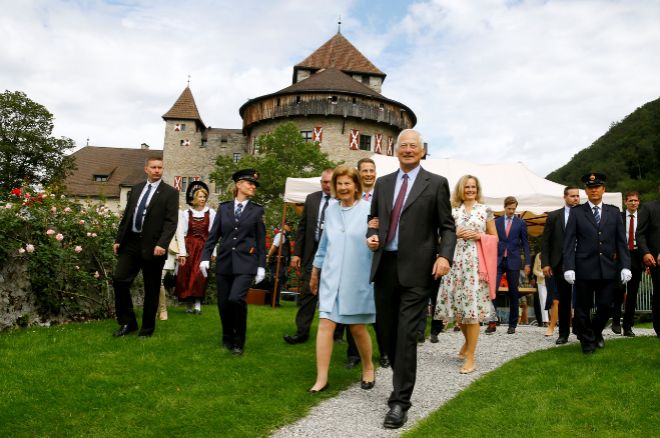Liechtenstein celebrates its 300th anniversary, ruled by one of the richest dynasties in the world that accumulates almost medieval powers.
Hans Adam II of Liechtenstein, portrait of the richest prince in Europe
The sixth smallest country in the world (just 176 square kilometers) has one of the highest standards of living, with a per capita income of 130,000 euros . And, in front, it has a monarch with almost absolute powers, revered for its little more than 38,000 subjects. The description could lead us to think of some emirate of the Arabian Peninsula or some satrapia of the Far East. And yet we talk about a nation in the heart of Europe that this 2019 celebrates its 300th anniversary: Liechtenstein.
He does not like to lavish in the media the princely family of this peculiar state nestled between Switzerland and Austria, known in Spain especially by one of its members, Princess Nora, widow of the Marquis de Mariño, father of Isabel Sartorius . A nephew of the stepmother of the queen who was not, Prince Alois (51 years), is the almighty regent of Liechtenstein. His Serene Highness has been in charge of the country since 2004, when he was passed by his father, Hans Adam II, although he still holds the leadership of the State.
The Constitution of the principality grants Alois wide prerogatives , such as appointing judges, dismissing members of the Executive, granting grace measures at will or vetoing each and every one of the laws if they are not to their liking.
The sovereigns of Liechtenstein are very clear that they are lentils. If your subjects want Monarchy, with all the consequences; If not, they leave. Thus, in recent times there have been up to two threats of princely resignation. In 2003, Hans Adam threatened to leave the throne if the Fundamental Law was not reformed to strengthen his powers by considering that the opposite prevented him from governing effectively. Two thirds of the citizens endorsed their demand at the polls. "We must be the first country in the world that decides to vote for the return to the Middle Ages, " the leader of the opposition Democratic Party, Sigvard Wolhend, said wryly.
More critical was the situation experienced in 2012. A citizen platform got the necessary signatures so that in the Lilliputian country a proposal to decriminalize abortion could be submitted to the referendum during the first 12 weeks of gestation. Alois, a very rigorous Catholic, mounted in anger and warned not to move forward with the initiative since he was going to veto any law in that regard. He got his way, but the same platform counterattacked by promoting another referendum, in this case for the people to decide if they kept their prince the right to veto the rules of Parliament. The sovereign made it clear that if they touched a hair, he left the crown . And the popular consultation ended up with another 76% supporting its monarch. Even the medieval right of pernada would have been granted if he had demanded it, as seen.
Keep in mind that in Liechtenstein stability, prosperity and the huge attraction of foreign investments are linked to his princely family. The dynasty, with a fortune of at least 3,200 million euros , according to Forbes, is the main owner of the national financial empire with headquarters in more than 20 countries, has vast properties throughout Central Europe, controls the famous Liechtenstein vineyards and owns a of the most important private art collections on the continent.
Discretion is one of the hallmarks of this dynasty. Also its conservatism. When in all the Cortes it became the norm for heirs to marry commoners, in Liechtenstein the tradition was maintained with a blue-blood wedding among equals . It was in 1993, when Alois said yes to Duchess Sofia, great-granddaughter of the last king of Bavaria, Louis III. The link brought together members of almost all European royal families in Vaduz, including the then Prince Felipe, who for a time was paired with Princess Tatiana, sister of our protagonist.
The domains that constitute Liechtenstein today were part of the Holy Germanic Empire. In 1719, Charles VI created the principality from the dominions of the manor of Schellenberg and Vaduz County. Three centuries have passed. But some things remain intact, such as the sadistic law that prevents women from accessing the throne. Recently, Alois was asked about this issue, who dismissed it saying that "it would not be easy to change a system that has proven effective for centuries." We do not know whether or not their subjects would like to have a head of state. Although most likely they will not even consider it, because, it is already known, in this country, what their prince says goes to mass. How to take the opposite.
According to the criteria of
Know more
Comments
This news has no comments yet
Be the first in give your opinion
0 comments
